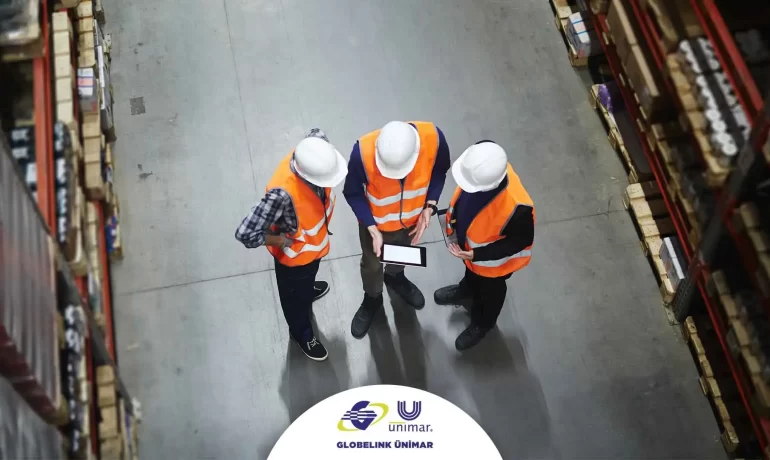
- October 19, 2021
- Blog
Today, the number of people who only buy products produced in their own country is decreasing. Because most products are not entirely manufactured in just one country. For example, the engine of a German car can be produced in France and the steering wheel in Turkey. The call center of an American-origin product may be in India.
The borders of countries are getting closer and closer to each other, and countries are collaborating on various issues. One of the most important reasons for this is globalization. Whether we like it or not, it is obvious that we live in a global world.
Globalization is not only an economic concept but also a social, cultural and political development. Businesses that want to market their products to other countries have faced global competition. The rapidly increasing competition as a result of globalization affects the environment and conditions of businesses in both local and international markets. Competition, which is effective in realizing the goals of enterprises, is in relationship with many factors such as price, quality, service and support.
With the increasing competitive pressure, businesses need to excel in these factors in order to exist. Because the increasing competition with globalization has made it necessary for businesses to review their costs. Since the production processes constitute a significant part of the costs of the enterprises, most of the changes have been in this direction. Considering that they will sell products to many countries, businesses have started to move their production to places where labor is cheap.
Thus, the distances between the place of production and the target market or warehouses have increased. This situation once again revealed the importance of logistics.
It Has a Strategic Importance
Logistics activities directly affect the competitiveness of businesses and even provide a competitive advantage to businesses. In the global competitive environment, it may not be sufficient for the consumer to produce a product of high quality, useful or low price. Businesses have to deliver the product to the consumer at the time the consumer wants, where he wants and without any errors. In this context, logistics has become one of the most effective means of competing in the markets created by globalization. In order to ensure customer satisfaction due to difficulties arising from competition and economic crises, businesses have understood that competition can be realized by integrating supply, production and distribution activities.
The intensification of globalization and the increase in technological developments have highlighted the need for the logistics industry to implement its activities more efficiently and in a planned manner. The concept of integrated logistics brought about by the globalization process envisages delivering the right product at the right place, at the right time, in the right quantity and at an affordable price.
It is predicted that the size of the global logistics industry will reach 15.5 trillion USD in 2023.
Therefore, logistics services have strategic importance for businesses. Since logistics is considered to be the key to overall business success, most businesses have made progress with the changes they will make in this regard. In the 2000s, businesses accepted the idea that they have a positive ‘added value’ role, contrary to the traditional view that various functions in logistics are a cost burden that should be minimized. Thus, the role and importance of logistics continued to be recognized as a key enabler for business advancement.
Considering the size of the world logistics market, at least 25% of every dollar of value produced in the world is provided by activities in the field of logistics, and it is predicted that the size of the global logistics industry will reach 15.5 trillion US dollars in 2023, depending on the increase in international trade day by day.
Workforce and Sustainability
In the business world where global competition is intense, businesses in all sectors have to take steps to turn competition into an opportunity. At this point, there are two elements that should not be neglected: These are qualified workforce and sustainability. One of the biggest goals of businesses is to survive economically. However, the main issue is not to harm the environment and society while doing this. Consumers are becoming more conscious day by day, and they buy the products of companies that do not harm the environment and society. Considering the modes of transport, traffic and toxic gases released into the environment, it is seen that the logistics industry has a very high potential to harm the environment.
When the distribution of greenhouse gas emissions in the logistics industry in the World is examined, it is understood that 89% of this rate comes from transportation and 11% from facilities and warehouses. According to the 11th Development Plan Report prepared by the Ministry of Development in 2018, approximately half of the 1,600 million tons (Mt) CO2 emissions resulting from international freight transportation (830 Mt) are due to sea transportation, approximately 40 percent is due to road transportation (630 Mt), 6 percent is due to air transportation, and 2 percent is due to rail transportation.
In the business world where global competition is intense, workforce and sustainability are the two elements that should not be neglected.
Secondly, for businesses, infrastructure or technology are features that can be easily imitated. However, human resources that can use technology effectively cannot be imitated easily. In terms of the progress and development of the sector, more educated employees are needed. The logistics industry, which is labor-intensive as a service industry, must also employ a qualified workforce in order to adapt to the developments. Thus, especially the personnel qualified in logistics will ensure that the enterprises are one step ahead in the industry. In addition to supporting the logistics training given at the university level with workplace practices, the integration of virtual reality and game-based training will also increase the quality of the training provided.
The efficiency of logistics activities, which is a critical point in the competitiveness of enterprises, and the quality of the workforce in the sector are directly proportional. It is extremely important for employees to know the correct and necessary information about the sector and to improve their existing skills or to reveal skills that they are not aware of. At this point, the necessary importance should be given to the in-service training to be given to the personnel. Studies in the logistics industry have revealed that in-service trainings such as orientation, rotation, and Professional development increase the commitment of the personnel to the business, their job satisfaction and motivation, and even reduce the burnout syndrome.
A Competitive Tool
Logistics activities have become the most important competitive tool of enterprises in the competitive environment, which has become more intense with the effect of globalization. Especially in international trade, globalization and logistics are two actors that are closely related to each other. For this reason, it is necessary to act with a strategic point of view and place logistics in the center. At this point, considering the future generations, focusing on sustainable logistics practices including vehicles that do not use fossil fuels, more efficient routes for various transportation modes or new modes of transportation such as hyperloop, and employing a qualified workforce will make businesses come to the forefront by making a difference in the sector.
Artificial Intelligence is Both Changing and Transforming
Today, we can see the clues that we will
The Future of the Cargo Market is Shaped by e-commerce
The e-commerce industry has been growing rapidly since the



